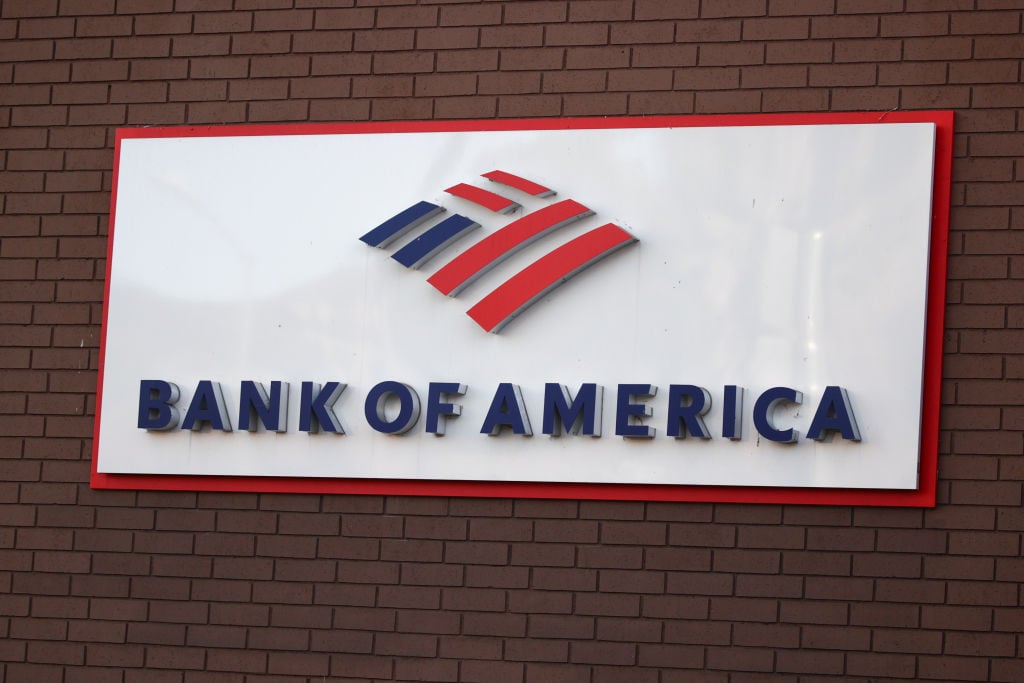Today I had the distinct pleasure to sit down with one of my favorite people to talk about the ongoing situation at Bank of America (NYSE: BAC). He may not be the smartest person I know, but he's definitely the most... well, he's definitely the most something.
He's Fool contributor and banking analyst Matt Koppenheffer, also known simply as "me." So, without further ado:
Matt Koppenheffer 1: Matt, thank you so much for taking the time to sit down with me today to talk about this very troubling situation.
Matt Koppenheffer 2: These are troubling times, so I'm happy to do it.
MK1: Well, let's get right down to brass tacks here. What do you see happening at B of A? Based on the big declines in the stock price, the market seems to be expressing very little confidence in the bank.
MK2: Precisely, and I think the market is absolutely right. It has become quite clear that B of A will go the direction of Lehman, and will soon enter the books as the largest financial-company blowup in history.
MK1: What specifically do you see transpiring for this to come about?
MK2: Obviously, B of A is in store for an incredible amount of additional losses. Based on my calculations, Bank of America is set to lose roughly $2 trillion in the near term. With just $222 billion in shareholders' equity, and $2.3 trillion in total assets, this would absolutely wipe the bank out.
MK1: That is an incredible number! Your loss expectations far exceed anything I've seen so far. Do you mind sharing with us how you got there?
MK2: Absolutely. I started with goodwill and intangible assets, which are clearly worth nothing, so that's an $80 billion loss right off the bat. I have no idea what they mean by "other assets," so I assume that half of that will disappear, which would be another $87 billion. We all know that Goldman Sachs (NYSE: GS) beats everyone when it comes to trading, so I assume that three-quarters of B of A's trading account will disappear. That's another $148 billion, which brings us to $315 billion.
From there, we wipe out $13 billion of mortgage servicing rights. I mean, come on, we all know the housing market is over, period. Derivative assets? Those are very dangerous, so I assume that the bank will lose 15 times the $67 billion on its books, which tacks on another $1 trillion in losses. Ever heard of a little thing called "off balance sheet assets?" Silent killers, they are -- another $500 billion there.
Lastly, U.S. interest-bearing deposits will take a hit because of the awful U.S. economy, which tacks on a final $162 billion.
MK1: I'm speechless. I don't even know where to start. U.S. interest-bearing deposits are a liability, not an asset, so I don't even understand how Bank of America would report a loss from that. It sounds like you pulled the off-balance-sheet number out of thin air. As for the rest of it, those numbers all sound like gibberish. Do you have any real justification for the calculations that you used?
MK2: Justification? I just read a few of the recent reports and blog posts about Bank of America, and I assumed that I simply needed to grab large numbers from its balance sheet, then use random math to come up with the largest losses possible. Is that wrong?
MK1: I think this interview is over. Do you have anything of real substance to say about Bank of America before I let you go?
MK2: Tupac isn't dead -- former B of A CEO Ken Lewis kidnapped him, and the two of them are making a record in Costa Rica. Oh, and after he got Ken Lewis to agree to buy Merrill Lynch at a massive premium, John Thain also got Lewis to agree to keep a life-sized gold statue of a shirtless, flexing Thain in his office.
MK1: This has clearly been a waste of time.
Back to reality
There have been a lot of scary numbers thrown around with regard to Bank of America lately. As far as I can tell, a lot of those numbers have been derived through a process like the one above: using random math on big numbers from the bank's balance sheet. I'm not going to tell you that there isn't more trouble ahead for B of A, but I am very skeptical of some of the sirens I've heard sounding lately.
The opacity of B of A's balance sheet makes it very difficult to figure out what the assets are really worth. However, those with bearish cases only have the same opaque statements to work with -- unless, of course, they have inside information, which I don't believe any are claiming.
With regard to the comparisons to Lehman and Bear Stearns, and the concern about the stock price and the market's confidence in particular, the comparison only goes so far. Yes, it hurts badly when the market loses confidence in you, but like JPMorgan Chase (NYSE: JPM) and Citigroup (NYSE: C), Bank of America is a major deposit-holding institution, so its major financing sources are very different than Lehman's or Bear Stearns'. The balance sheet leverage at Bank of America is also nowhere near what it was -- or what Lehman's or Bear's was -- back in 2008.
Though I own a small position in B of A, you're not going to catch me being particularly bullish on the stock -- there are too many unknowns for that. However, when I start to see random small-f foolishness being thrown around, I can't help but call it out.
If you're using the craziness of the recent market turmoil to do some stock shopping, I don't think B of A is among your best bets. However, I think almost everybody can find something that they'd like in our free report "13 High-Yielding Stocks to Buy Today."






